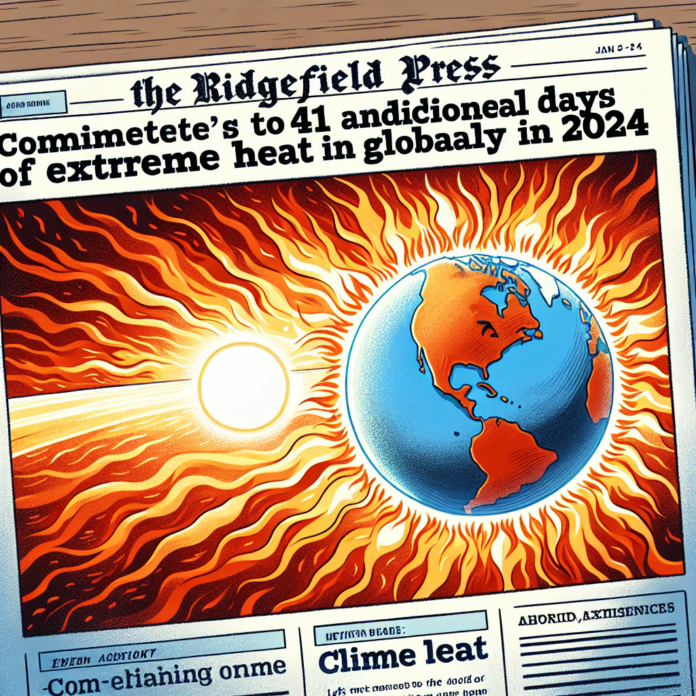Climate Change Leads to Increased Dangerous Heat in 2024
Climate Change Contributes to 41 Days of Extreme Heat Worldwide in 2024
The Ridgefield Press reports that the year 2024 has seen a significant increase in extreme heat days globally, with climate change being a primary contributing factor. This alarming trend has resulted in 41 additional days of dangerously high temperatures, impacting both human health and the environment.
Recent studies indicate that rising greenhouse gas emissions, primarily from fossil fuel combustion, are intensifying heatwaves and altering weather patterns. These extreme heat events pose serious risks, including heat-related illnesses, increased mortality rates, and strain on healthcare systems. Vulnerable populations, such as the elderly and those with pre-existing health conditions, are particularly at risk.
Global Implications of Increased Heat Days
The repercussions of this extreme heat extend beyond immediate health concerns. Agricultural sectors are facing challenges as crops suffer from heat stress, leading to diminished yields and increased food insecurity. Livestock also experience adverse effects, which can disrupt food supply chains and drive up prices.
In addition to agricultural impacts, the infrastructure of many cities is being tested. Urban areas, often referred to as “heat islands,” are experiencing intensified heat due to concrete and asphalt absorbing and retaining heat. This phenomenon can lead to increased energy demand for cooling, resulting in higher electricity costs and greater pressure on power grids.
Mitigation Strategies and Future Outlook
To combat the effects of climate change and reduce the frequency of extreme heat days, experts emphasize the importance of adopting sustainable practices. Transitioning to renewable energy sources, enhancing energy efficiency, and implementing urban planning strategies that prioritize green spaces can help mitigate these impacts.
Furthermore, international cooperation is essential in addressing global climate challenges. Nations must come together to commit to reducing carbon emissions and investing in climate resilience strategies. Public awareness campaigns are also crucial in educating communities about the risks associated with extreme heat and promoting adaptive measures.
As the world grapples with the realities of climate change, the increase in dangerous heat days serves as a stark reminder of the urgent need for action. Without significant efforts to address the root causes of climate change, the frequency and severity of extreme heat events are likely to continue to rise, posing ongoing threats to health, agriculture, and overall societal stability.


